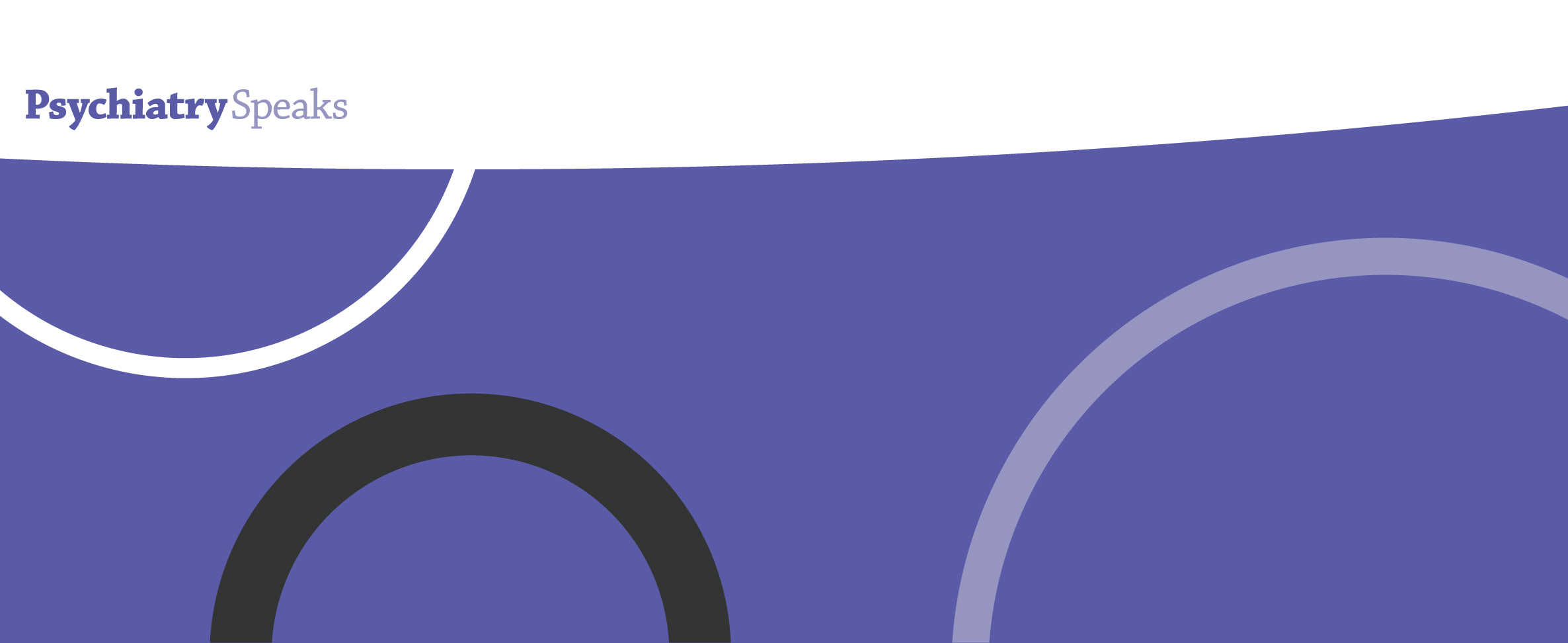
Psychiatry Speaks – Surveying current opinion about the care of patients with Schizophrenia
PsychiatrySpeaks provides new insights from an international market research survey of 1,650 psychiatrists from eight countries, conducted by Otsuka and Lundbeck in December 2014. A comprehensive report that summarises the key findings of the survey, which explores the beliefs and behaviours of psychiatrists with respect to their care of schizophrenia (see link at the end of this article).
The results of the survey demonstrated that, compared to other key areas in the field of psychiatry, psychiatrists believe that over the past 10 years progress has taken place in the treatment of schizophrenia, although they also believe that much still remains to be done.1
This finding goes hand-in-hand with research on the treatment of schizophrenia presented recently at a number of international congresses (International Conference on early Psychosis Japan 2014, ECNP Amsterdam 2015, APA Toronto 2015, EPA Vienna 2015). Increasingly, psychiatrists are recognising that the treatment of schizophrenia has changed from symptom control and relapse management to enhancing recovery – that is, the ability of the patient to function in the real world.2 Ultimately, it is hoped that prevention of the first psychotic episode and the amelioration of this life-long condition will be possible as scientists and psychiatrists search for markers that will enable those at risk to be identified in childhood.3
However, one major stumbling block to true progress and recovery remains steadfastly in place. The stigma of mental illness – particularly of schizophrenia – remains a barrier to effective treatment even in countries where legislation has been passed outlawing discrimination.4 Many initiatives are in place to help overcome prejudice towards those with mental health problems. For example, a programme of Citizen Psychiatry taking place in Lille, France, has successfully integrated those with mental health problems into the community.5 Interestingly, respondents to the PsychiatrySpeaks survey suggest that there is also prejudice from the wider medical profession towards psychiatry, which suggests that there may be a need for some healers to heal themselves.1
PsychiatrySpeaks provides new insights from an international market research survey of 1,650 psychiatrists from eight countries.
One major change that has come about is not only the recognition that patients’ treatment goals may be different from those of the physician, but that there is a real need to respect the patients’ goals.1 To the physician, one goal is to control symptoms and prevent future relapses, thereby preventing further insults to the brain and avoiding physical deterioration.6,7 A goal that physicians share with patients is the preservation of patient autonomy and the ability to lead a meaningful life.1,7,8 Effective management - diagnosing the condition accurately and early and collaborating with patients to ensure adherence with appropriate therapy - may allow both the physicians’ and patients’ goals to be achieved.9
The recently reported findings from the RAISE (Recovery After an Initial Schizophrenia Episode) study - a US National Institute of Mental Health (NIMH) research project demonstrated that the trajectory and prognosis of schizophrenia can be improved through coordinated and aggressive treatment.10 With early and appropriate intervention, it should be possible to reduce the likelihood of long-term disability in schizophrenia and help patients lead more productive, independent lives. Standard care was compared with the interventional ‘Navigate programme’. This programme consists of 4 components – ensuring patients receive tailored medication designed to their needs; providing resilience training for young people still processing the ideas around their disease and its treatment; supporting employment, education and rehabilitation; and engaging with and supporting families.11
Its 2-year results show that comprehensive intervention can alter the trajectory of this illness. Remarkably, the integrated intervention programme improved outcomes in patients in whom the duration of untreated psychosis was as long as 74 weeks. Beyond this time point, it seemed to be less effective.10 This study raises important points regarding the urgency of effective treatment and adherence to medication.
Current pharmacological treatment options are oral antipsychotic agents or long-acting injectables (LAIs). The preferred treatment option amongst psychiatrists, both for first-episode schizophrenia and following relapse, is oral antipsychotics.1 While randomized, controlled clinical trials suggest that there are no differences in outcomes when antipsychotic drugs are given as oral or LAI formulations12,13 real-life studies suggest otherwise.14,15,16 It has been reported that, compared with oral formulations, LAI formulations are associated with lower rate of relapse and lower hospitalization rates.17
Non-adherence is a major problem in schizophrenia, with most patients at risk of partial- and non-adherence at some time during the course of their illness.18 It has been demonstrated that poor adherence is a common cause of relapse in schizophrenia.19,20 LAIs may increase long-term adherence to treatment and thereby reduce the risk of relapse and improve patient functioning. 21 In addition, attention is increasingly being paid to the benefits of maintenance therapy, even in patients with a good initial response, and LAIs may be beneficial in this context.22
While randomized, controlled clinical trials suggest that there are no differences in outcomes when antipsychotic drugs are given as oral or LAI formulations real-life studies suggest otherwise.
In encouraging better adherence,20,22 LAIs may support the goals of both psychiatrists and patients in preventing disease progression and allowing patients to resume a meaningful life with opportunities for social and family relationships and employment.
What’s your opinion?
Visit the PsychiatrySpeaks website where you can read the report and participate in the survey.
Our correspondent’s highlights from the symposium are meant as a fair representation of the scientific content presented. The views and opinions expressed on this page do not necessarily reflect those of Otsuka and Lundbeck.


